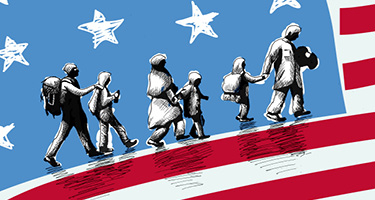10 Common Causes of Car Accidents in Dallas/Fort Worth, Texas
Dallas and Fort Worth see thousands of vehicle accidents every year. While some are minor fender benders, many cause serious injuries or even death. Understanding why these collisions occur can help motorists stay safe on North Texas roads. This blog post explores ten frequent causes of automobile accidents across the Dallas/Fort Worth area.
Distracted Driving
Distracted driving leads to a huge percentage of crashes in Dallas/Fort Worth and is one of the most common accident causes seen by our vehicle accident lawyer team. Any activity that diverts attention away from the road counts as a distraction. Most people recognize that texting and driving is unsafe. However, other high-risk behaviors include talking on the phone, eating, interacting with passengers, or playing with the radio or GPS. Even brief moments of inattention can result in an accident when driving at high speeds.
Drowsy Driving
Drowsiness slows reaction times as much as intoxication. Fatigued drivers cause frequent Dallas/Fort Worth collisions, often late at night or in the early hours of the morning. Skipping sleep, taking sedatives, working long hours, untreated sleep disorders, and driving for long periods without rest all increase drowsy driving risk. These accidents tend to be severe since tired motorists may struggle to brake quickly.
Speeding
Breaking the speed limit or driving too fast for road conditions contributes to several North Texas road accidents seen by our motor vehicle accident lawyers. At higher velocities, drivers have less time to react and stop. High speeds also intensify collision impacts, escalating the likelihood of injuries or fatalities. Some high-risk zones include freeways, rural roads, residential areas, construction zones, and school zones.
Driver Inexperience
Many accidents that our motor vehicle accident lawyers deal with involve teen drivers or elderly motorists. Novice teenage drivers lack behind-the-wheel experience detecting hazards or controlling vehicles in complex situations. At the other end, senior drivers may have declining vision, mobility, cognition, or reflexes. Both demographics would benefit from driver education courses focused on defensive driving techniques.
Failure to Yield Right of Way
Failing to properly yield when turning, changing lanes, entering traffic circles, or at stop signs causes car accidents. Confusion over right-of-way rules as well as reckless, hostile, impatient, or oblivious driving may be at fault. Intersections are particularly high-risk. Drivers can protect themselves by making eye contact, taking turns slowly, and double-checking for oncoming vehicles.
Intoxicated Driving
Several collisions dealt with by our automobile accident lawyers in the Dallas-Fort Worth region involve an intoxicated driver. Drunk, drugged, or otherwise chemically impaired motorists have delayed reactions and difficulty controlling speed or direction. Night-time hours after bars close and weekends tend to see more incidents. Ridesharing services provide safe transportation for intoxicated individuals.
Aggressive Driving
Hostile maneuvers like tailgating, erratic lane changes, unsafe passing, failure to signal, running red lights, and speeding dramatically increase accident risk. A huge portion of fatal crashes in Texas involve aggressive driving. Staying calm, limiting distractions, and allowing plenty of time to reach destinations helps avoid confrontation on the roads.
Weather Conditions
Inclement weather contributes to several Dallas/Fort Worth crashes as rain, fog, wind, or storms create slippery, obstructed, or hazardous road conditions. During winter months, ice and snow limit traction and visibility. Drivers can prepare by checking forecasts before trips, slowing down, allowing extra distance between vehicles, and braking gently.
Vehicle Defects
While not the primary cause, road traffic accident lawyers see several accidents as a result of vehicle defects including faulty parts, maintenance issues, or tire blowouts. Drivers should perform regular inspections, follow service schedules, check tire pressure, replace worn parts, address recalls, and have mechanics investigate any new noises, leaks, pulls, vibrations, warning lights, or changes in performance.
Urban Roads
Large metro areas see high accident rates, particularly on urban freeways. Dallas and Tarrant countries contain complex networks of multi-lane highways crossing densely populated cities. Combining heavy traffic volumes with tight spaces, tricky interchanges, and short ramps leaves little room for driver error. Staying focused, driving defensively, and using caution around large vehicles can help reduce mishaps.
Responding After a Crash
Being part of a vehicle collision is scary, stressful and inconvenient. While emotions run high, drivers should follow key steps to maximize safety after a crash, document important details, obtain medical care if needed, and get the claims resolution process started on the right foot. Having an action plan helps minimize further damage and speeds recovery. Here are some essential to-dos following an automobile accident:
- Move to a safe location: If vehicles are still operable, drivers should carefully move them out of any active traffic lanes and turn on hazard lights to warn other motorists. Pulling over to the shoulder, a side street or parking lot helps prevent secondary collisions.
- Call 911 for emergencies: In a major crash with injuries, fire, entrapment or hazardous chemical spills, call 911 immediately. Dispatchers send police to secure the scene, direct traffic, take statements and facilitate an investigation.
- Render aid if possible: If qualified to do so safely, provide first aid to anyone injured until paramedics arrive. Apply pressure to stop bleeding and elevate wounds above the heart. Avoid moving victims with possible spine or neck trauma unless vehicles are on fire.
- Document the scene: Use cell phones to photograph damage to all vehicles, skid marks, debris locations and the surrounding area, like traffic lights. These pictures supplement police reports with additional perspective that claims adjusters review.
- Exchange information: Drivers should trade documentation like license and registration while at the scene. Note down witness names and their accounts of what happened.
- Seek medical attention: Even if they are not in pain immediately, accident victims need to get examined. The adrenaline of collisions often masks internal injuries, fractures or delayed-onset conditions.
- Report the crash to insurers: Contact an accident lawyer first for advice, then notify insurance providers about the accident. Describing damaging accurately and cooperating fully with investigations sets reasonable expectations and demonstrates good faith.
How We Can Help
If you have been involved in a traffic collision in the Dallas/Fort Worth area, either due to one of the above-mentioned reasons or something else, Karns & Karns Personal Injury and Accident Attorneys can help. We’re dedicated to fighting for our clients’ rights and getting you the compensation you deserve. Call today for your free consultation.
















